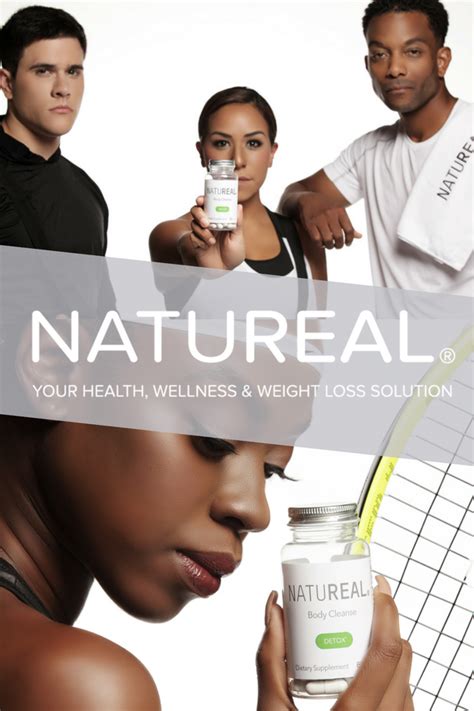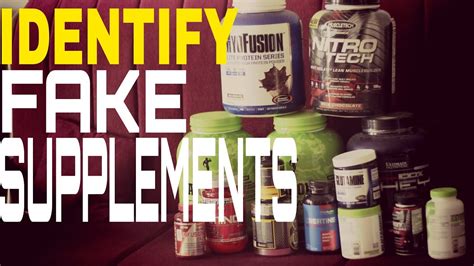Signs of Fake Fitness Supplements: How to Avoid Getting Ripped Off
The fitness supplement industry is booming, with countless products promising to help you build muscle, lose weight, and improve your performance. However, with so many options available, it can be tough to separate the real deals from the fakes. Unfortunately, the market is also rife with counterfeit supplements that can be dangerous and ineffective.
Fake supplements are often made with cheaper ingredients or even harmful substances, and they may not contain the active ingredients listed on the label. This can lead to a range of problems, from mild side effects to serious health issues.
It’s important to be aware of the signs of fake fitness supplements and to take steps to protect yourself from being scammed. This guide will provide you with the knowledge you need to navigate the supplement market safely and confidently.
What are the Signs of Fake Fitness Supplements?
Recognizing fake fitness supplements can be tricky, but there are several telltale signs to watch out for.
Let’s dive into some of the most common red flags:
1. Unrealistic Claims and Promises
One of the biggest red flags is when a product makes exaggerated claims about its benefits. Be wary of supplements that promise to deliver miraculous results without any effort on your part.
If a supplement claims it can help you lose 10 pounds in a week without diet or exercise, it’s likely a scam. Authentic supplements generally promote gradual and sustainable results achieved through a combination of healthy habits and proper use.

Remember, there are no shortcuts to fitness and health. Any product that promises unrealistic results is probably not legitimate.
2. Spelling Errors and Poor Packaging
A poorly designed label with misspellings, grammatical errors, and blurry graphics should raise a red flag. Reputable brands invest in high-quality packaging to showcase their products and maintain a professional image.
Examine the labeling carefully. Look for typos, inconsistent font sizes, or poor printing quality.
3. Unusually Low Prices
If a supplement is priced significantly lower than its competitors, it might be a fake. Be skeptical of deals that seem too good to be true. While sales and promotions are common, be aware of incredibly low prices that might indicate counterfeit products.
Legitimate supplements typically have a higher price tag because they contain high-quality ingredients and are subject to strict regulations. Be wary of unusually low prices, especially when purchasing from online retailers or unknown brands.
4. Lack of Contact Information
Reputable brands are transparent about their products and their company information. Look for a clear website, a physical address, and a contact number on the product label.
If you’re unable to find any contact details or if the information seems suspicious, it’s best to steer clear of the product.
5. No Third-Party Testing or Certification
A reputable supplement manufacturer will typically have their products independently tested by a third-party laboratory to verify the ingredients and quality. These third-party certifications, like NSF or Informed Choice, are a good indication of a company’s commitment to quality and safety.
Look for certifications on the product label or packaging. If you can’t find any, consider contacting the manufacturer to ask about their testing procedures.
6. Inconsistent Batch Numbers or Expiry Dates
Each batch of supplements should have a unique batch number and expiry date. Inconsistent or missing batch numbers or expiry dates could indicate that the product is not authentic.
Check the batch number and expiry date to ensure they are consistent and legible. If you find any discrepancies, it’s best to avoid purchasing the supplement.
7. Unusual Texture, Color, or Odor
Fitness supplements should have a consistent appearance, texture, color, and odor. If a supplement looks or smells unusual, it could be a sign of contamination or tampering.
Trust your senses. If a supplement has an off-putting appearance or odor, it’s better to err on the side of caution and choose another option.
8. Online Retailers with No Reviews
When purchasing supplements online, be wary of retailers with no customer reviews. This could be a red flag that the seller is untrustworthy or that the product is not legitimate.
Read customer reviews on different platforms before making a purchase. Look for authentic reviews that provide detailed feedback on the product’s effectiveness and quality.
9. Lack of Proper Storage
Supplements should be stored in a cool, dry place away from direct sunlight and heat. If the product is stored improperly, it could be damaged or contaminated.
Check the storage conditions of the supplements before purchasing. Make sure they are stored in a clean and well-ventilated environment.
10. Suspicious or Unusual Promotions
Be cautious of promotions that seem too good to be true. Some companies might use deceptive tactics to attract customers, like offering unrealistic discounts or free trials that come with hidden charges.
Always read the fine print before purchasing a supplement. Be aware of any hidden fees or obligations, and look for reputable companies with a history of providing high-quality products.
How to Avoid Fake Fitness Supplements
Once you are aware of the signs of fake fitness supplements, here are some practical tips to help you avoid falling victim to counterfeit products.
1. Buy from Reputable Retailers
Purchase your supplements from reputable retailers with a good track record. Look for stores that carry a wide range of brands and that have a dedicated staff who can answer your questions.
Avoid buying supplements from unknown or suspicious online retailers. Stick to established retailers with a strong online presence and positive customer reviews.

2. Research the Brand and Product
Take the time to research the brand and the product before making a purchase. Read online reviews, check the company’s website, and look for independent testing results.
Be sure to compare prices across different retailers to ensure you’re getting a fair deal.
3. Check for Third-Party Certifications
Look for third-party certifications like NSF, Informed Choice, or USP. These certifications indicate that the product has been tested and verified by an independent laboratory, and that it meets specific quality and safety standards.
A product with these certifications is more likely to be authentic and safe.
4. Contact the Manufacturer if You Have Questions
If you have any questions about a product, don’t hesitate to contact the manufacturer directly. Ask about their manufacturing processes, quality control measures, and testing procedures.
A legitimate company will be transparent about their products and their operations.
5. Be Skeptical of Unrealistic Claims
Remember that there are no quick fixes or shortcuts to fitness. Be skeptical of products that promise miraculous results.
Focus on supplements that support a healthy lifestyle and that are based on scientific evidence.
Consequences of Using Fake Fitness Supplements
Using fake fitness supplements can have serious consequences for your health and well-being. Here are some of the potential risks associated with counterfeit products:
1. Health Risks
Fake supplements can contain harmful ingredients or contaminants that can lead to a range of health problems. Some common side effects include:
- Gastrointestinal problems
- Headaches
- Dizziness
- Skin rashes
- Liver damage
- Kidney damage
- Cardiovascular problems
In severe cases, counterfeit supplements can even be fatal.
2. Ineffectiveness
Fake supplements may not contain the active ingredients listed on the label. This means that you are unlikely to see any benefit from using them. You may even be wasting money on a product that has no effect on your health or fitness goals.
3. Legal Consequences
The sale and distribution of counterfeit supplements is illegal in many countries. If you are caught selling or distributing fake supplements, you could face significant penalties, including fines and imprisonment.
Conclusion
The fitness supplement industry is a complex and sometimes confusing market. It is crucial to be vigilant and take steps to protect yourself from counterfeit products. By being aware of the signs of fake supplements and by following our tips, you can make informed choices and ensure that you are using products that are safe and effective.
FAQ
What are some of the most common fake fitness supplements?
Some of the most commonly counterfeited fitness supplements include protein powders, creatine, pre-workout supplements, and fat burners.
How can I tell if a protein powder is fake?
You can tell if a protein powder is fake by checking for the signs mentioned above. Look for poor packaging, inconsistent batch numbers, or unrealistic claims about the product’s protein content.
What are the risks of using fake protein powder?
The risks of using fake protein powder include health risks, such as gastrointestinal problems, liver damage, and kidney damage. You may also be ingesting harmful contaminants or substances that are not listed on the label.
Can I get sick from fake supplements?
Yes, you can get sick from fake supplements. They may contain harmful ingredients, contaminants, or substances that are not listed on the label.
Is it illegal to sell fake fitness supplements?
Yes, it is illegal to sell fake fitness supplements. This is because the sale and distribution of counterfeit supplements is illegal in many countries.
What should I do if I think I have bought a fake supplement?
If you think you have bought a fake supplement, stop using it immediately. Contact the retailer where you purchased the product and report your concerns. You can also contact the manufacturer of the supplement and the local authorities.
What are the best ways to protect myself from fake supplements?
The best ways to protect yourself from fake supplements include buying from reputable retailers, researching the brand and product before you buy it, and checking for third-party certifications.
